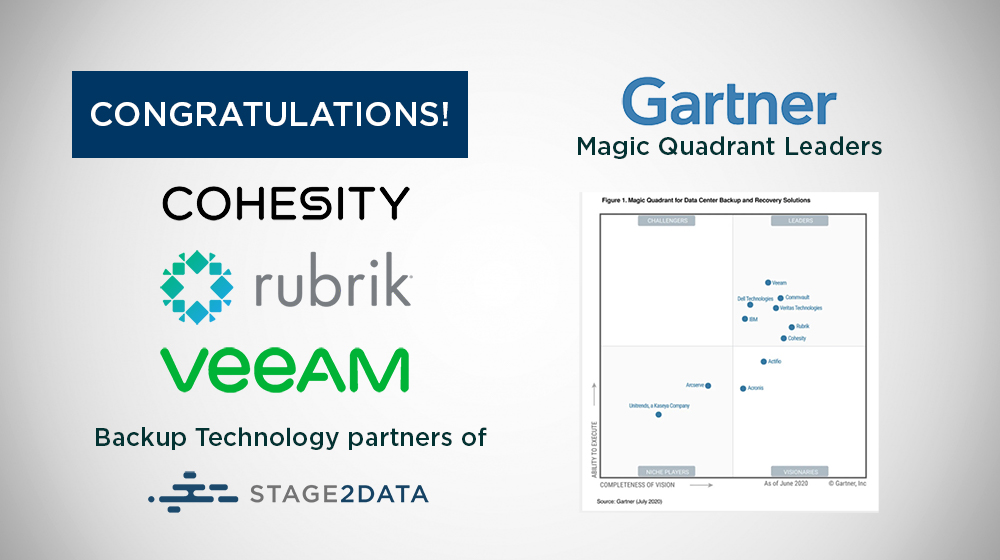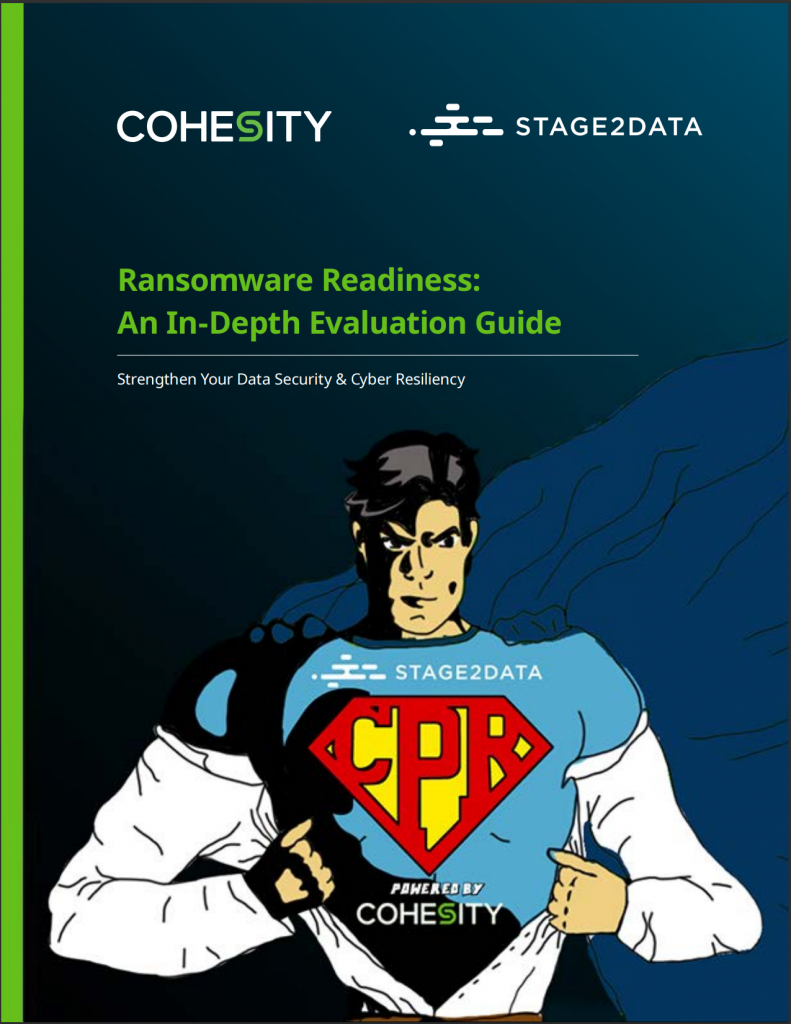Organizations are progressively moving toward public cloud and with this comes increased concerns over ransomware and the complexities associated with backup and data management. This scenario is forcing business and IT leaders to either rearchitect their backup infrastructure or explore alternative solutions. This year’s Gartner Magic Quadrant for Data Center Backup and Recovery Solutions report (“Gartner Report”) provides several analyses of backup and recovery vendors including our partners Veeam, Rubrik and Cohesity.
We want to congratulate our partners, Veeam (for the Veeam Availability Suite), Rubrik (for their Cloud Data Management (RCDM); core backup platform; and Polaris) and Cohesity (for their strategic acquisitions in the last year) being named leaders in their respective fields in the 2020 Gartner Report.
Market description
Data center backup and recovery solutions are designed to capture a point-in-time copy (or backup) of an enterprise’s workload and copy this data to a secondary storage device to recover this data at some point in the future. The core functionalities of a backup and recovery solution are, therefore to:
- Back up and recover operating systems, files, databases, and applications in both physical and virtual environments in the data center.
- Assign backup and retention policies that align with the organization’s recovery objectives.
- Report success and failure of backup/recovery tasks.
- Protect public cloud PaaS, SaaS and IaaS.
Vendor strengths and cautions
The Gartner Report further focused on the respective strengths and weaknesses of each organization. We briefly touch on the strengths in as far as they relate to our three partners, below.
Veaam was commended for its strengths including its monitoring, reporting and diagnostics expertise; its licensing portability which afforded customers the flexibility to repurpose the same licenses when they switch hypervisors, migrate from physical to virtual or cloud environments, or from on-premises to cloud; and its comprehensive Microsoft Exchange and Office 365 support.
Cohesity’s strength undoubtedly lies in its centralized monitoring and management where Cohesity customers can leverage Helios, a SaaS-based platform that facilitates centralized management of multiple Cohesity environments and provides ransomware detection, capacity management, issue root cause analysis, and case management, as well as search and compliance capabilities. The company was also commended for its heterogeneous cluster support and its support experience. For the latter, Cohesity scored above average in service and support capabilities which the company attributes to a combination of superior account management and the use of its Helios SaaS platform to proactively detect, notify and remediate issues.
Rubrik’s major strength lies in its scalability which is based on a proprietary file system that can scale the appliance both in performance and capacity. Rubrik has reported that it has multiple customers that protect more than a petabyte of backup data in a single cluster. It further offers ransomware detection and remediation through Polaris Radar which monitors the backup environment for anomalies whereafter backup data is stored in an immutable format and so increase the overall resilience against ransomware. It further offers database recovery that supports near-instant availability of Microsoft SQL databases and Oracle Databases through the “live mount” feature, which reduces the overall recovery time objective.


